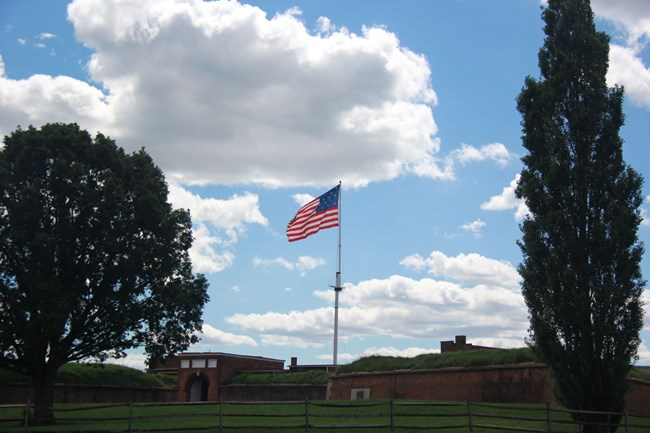
[Listen to an audio version [here].
Ambition. It may seem like a bad word, but it’s not. We should think about great things and seek great things.
The problem is selfish ambition. It is ambition at the expense of God and others that aims simply at glorifying ourselves. Ambition that aims at glorifying God and serving the community is not only legitimate, it is laudable. We should seek after it. We should seek to do as much good as we possibly can. We should seek the kingdom of God as our first priority.
So, why don’t we do it? Primarily, it’s because of resistance, internal and external. It’s hard. We may not even know where to start. Well, this passage tells us where to start in seeking greater things for the kingdom of God. Let’s consider it together.
Resistance
The Apostles here had already begun a great task. They were following Jesus’ command. They were to be God’s witnesses in Jerusalem and in Judea and Samaria and to the ends of the earth. The book of Acts is the story of how they obeyed this command.
The first day of their work went pretty well. They gained 3,000 converts. The next few days went pretty well, too. They were gaining traction.
Then, they encountered resistance. It was the same sort of resistance that Jesus encountered. The religious leaders did not like what they were doing. So, here’s what they did: “They seized Peter and John and, because it was evening, they put them in jail until the next day” (Acts 4:3).
They then brought Peter and John before them. Eventually, they said this, “Then they called them in again and commanded them not to speak or teach at all in the name of Jesus” (Acts 4:18).
The response of Peter and John was extraordinary. “Which is right in God’s eyes: to listen to you, or to him? You be the judges! As for us, we cannot help speaking about what we have seen and heard” (Acts 4:19–20). In other words, they had to listen to Jesus’ command rather than that of the religious leaders. It’s an obvious truth but still a bold response.
In spite of seeing this triumph, we need to remember that resistance is hard. When people oppose us, it makes things scary. When people get angry, it’s easy to see people as large and ourselves as small. We can feel like a little kid again. We may not be arrested for speaking about Jesus, but people may look at us as weird. It may also interfere with our other tasks. Getting involved with people takes time and it takes effort. It’s often messy. It’s easier to avoid it. Getting involved with people will involve resistance.
So, what do we do when we face resistance?
Prayer
We should turn to prayer. Instead of recoiling, running, or rebelling, we should turn to prayer, prayer for power. And that’s what they did. They prayed.
This is crucial. We should see that the book of Acts is filled with prayer. Dr. Lloyd-John Ogilvie, former Senate chaplain and Pesbyterian minister said in his excellent book on Acts: “The spectacular events spread across the pages of Acts must all be traced back to praying like that.” Ambition for God’s kingdom and prayer go hand in hand.
Let’s look a little more closely at their prayer. They begin their prayer by lifting their hearts above the things of earth to the greatness of their Creator. “Sovereign Lord . . . you made the heavens and the earth and the sea, and everything in them” (Acts 4:24). In itself, this perspective will help us begin to move beyond the frustrations and difficulties of our daily life.
Then, they quoted God’s words back to Him. They went to Psalm 2. “‘Why do the nations rage and the peoples plot in vain? The kings of the earth rise up and the rulers band together against the Lord and against his anointed one” (Acts 4:25–26). They then said, what you spoke about is exactly what happened. The Lord is faithful and true. Resistance is just what you promised.
Then, they brought the situation to God’s attention. “Now, Lord, consider their threats . . .” (Acts 4:29). God wants us to bring our specific circumstances before Him. How often do we face difficulties in work, business, school, family, or church that we don’t bring them to God? We may think, He already knows, but that is an erroneous way to think about prayer. God wants us to be very specific with Him.
And then they made a very specific request: enable them to speak with boldness and perform great signs. Continue this work by demonstrations of power outside them and within them. And that’s what we should do as well: make very specific requests.
Power
And see what happened. “After they prayed, the place where they were meeting was shaken. And they were all filled with the Holy Spirit and spoke the word of God boldly” (Acts 4:31). They sent up the prayer, and God sent down the power. That’s the way it always is.
Remember that power is a key word here. Jesus promised power. Even to those who had killed Jesus, God promised the gift of the Holy Spirit, the gift of power to be part of what Jesus was doing in redeeming the whole world.
That power is available to us, too, but we don’t just sit back and wait for it. Now, we may have to wait at times, but we don’t wait passively. We pray. We ask. We seek. We knock. We look for the Lord’s power. We ask, and God supplies. We seek, and God enables us to find. We knock, and God opens the door.
That’s what I want you to do, but we need an ambition for God’s kingdom. It’s only when we have an ambition for God’s kingdom that we will really begin to pray for the power that God wants to give.
Now, you may say to me, how does that start? What do I need power for? Start by thinking about the world around you. What would you want to see God do in your family? In your business? In your community? In your nation? In your church? In your neighborhood? Then, start praying. Start praying for God to open up doors. Start praying that He will enable you to cross the boundaries that have kept you from moving forward. Ask God to give you a vision for what He will do in you and through you.
People generally pray for two reasons. The first is when something disrupts their normal life such as family conflict, cancer, or job loss. The second is when they get a vision to do something bigger. When people move outside themselves, they sense their need for help. That’s where prayer comes in.
Recently, I talked with a woman at Aldi who I had not seen in a while. She told me she about a woman in her neighborhood she was reaching out to. She said, pray for me because we are having really good discussions. That’s what reaching out will do. It makes us feel our need. That moves us to prayer, and God then supplies the power.
When you start something new, you begin to pray. We’ve started Evergreen Midweek, and it is the sort of thing that I’m praying for regularly. I want to see it be a blessing to our kids, our youth, and our adults. I want to see it as something that will bless our community as well. I realize how little I can accomplish that. This drives me to prayer.
When Marty decided to get involved with disaster response, he did not know how he was going to fund it. It was tough, especially at the start. He prayed. We prayed. God has supplied the need. He is very close to being fully funded. That’s what happens when we get a vision to do something more.
There are people everywhere who need to experience God’s love and God’s purpose. God wants to empower you and use you to show that to them. He just wants you to be open to others and ask Him for help. He will supply the power.
________
Photo by Jon Tyson on Unsplash






